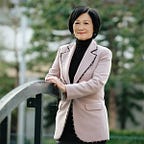Hong Kong’s Education Secretary Kevin Yeung dropped a bombshell end of August by asking references to “separation of powers” to be deleted from secondary school textbooks. That did not come as a surprise to me, as I have known all along that separation of powers never existed in Hong Kong.
I have been writing about the widespread misunderstanding about this subject since 2016, but my comments have fallen on deaf ears. The astonishing part is how long it took government officials to correct this miscomprehension. But perhaps not surprising after all, as none of Hong Kong’s government officials responsible for constitutional matters before or after 1997 have studied political science; nor have they bothered to inquire. That’s why if you talk to many Hong Kong persons in the 30s, they all thought that “separation of powers” is a core feature of Hong Kong’s political system.
The truth is, nothing is further from the truth than this. In the colonial era, Hong Kong was governed according to the Royal Instructions and Letters Patent, which vested all executive and legislative powers in the governor. The governor chaired the Legislative Council until 1993, when last governor Chris Patten removed himself from LegCo and appointed a senior lawyer in his place. Unelected senior civil servants were appointed as Official Members of the legislature. Together with other appointed members from the private sector, the government bloc always enjoyed a majority — until 1995, when Chris Patten removed the last ten Official members from the legislature, and ripped Hong Kong’s executive and legislative branches apart.
When the Basic Law setting out Hong Kong’s constitutional arrangements was being drafted in the 1980s, Hong Kong was still governed according to the “executive-led” model; the “ayes” always had it in the Legislative Council. The colonial administration had few problems implementing its agenda in the legislature, because the legislature was under tight control. Beijing thought it was inheriting this model from the British. But Beijing did not realize that the British decided not to hand over Hong Kong in 1997 as it was in 1984 (when the Sino-British Joint Declaration on Hong Kong was signed), but decided to institute major political changes before 1997 to make Hong Kong’s set-up more akin to its parliamentary system.
Many have since been preaching the value of separation of powers without recognizing that it is a political concept traceable to Aristotle but never got fully implemented in any leading democracy. Certainly not in the United Kingdom, where the executive and legislative branches are connected through the parliamentary system. Cabinet ministers are all Parliamentarians, and the executive branch is able to exert control on the legislature for as long as the ruling party has a majority. This fact was well acknowledged by Walter Bagehot in his book The English Constitution and by Bertrand Russell in A History of Western Philosophy.
Aristotle is the first to divide the activities of a government into three different functions — legislative, judicial and executive. Aristotle also argues that a “mixed regime” is preferred to any of the six regimes he identifies (kingship, tyranny, aristocracy, oligarchy, polity and democracy). Aristotle’s preferred model is a “mixed regime” which combines two “defective” systems, oligarchy with democracy. Under such a system, the many and the few would divide power and functions between them. This idea of a “mixed regime” is the origin of the notions of separation of powers and checks and balances.
These notions are implicit in the US Constitution though never directly mentioned. The idea of checks and balances was strongly advocated by James madison in The Federalist Papers and incorporated in the US’ constitutional arrangements. When Hong Kong’s Basic Law was being drafted in the 1980s, many of Beijing’s advisors advocated incorporation of “checks and balances” as in the US Constitution, such as the legislature’s power to impeach the Chief Executive, and the requirement of legislative approval for the appointment of the top judges.
Even in the US, the “first new nation” since the Enlightenment, a complete and distinct separation of powers between the three branches of government does not exist. The Supreme Court could change laws made by Congress by its judgment, and so can be said to have important legislative functions.
Thus it is accurate to say that “checks and balances” is an important feature of Hong Kong’s political system, but not “separation of powers”. The fact that this misunderstanding has persisted for decades (due to lack of research and proper guidance) is not a valid argument for not making a correction. For centuries men had believed that the earth was the centre of the universe. Does it mean Copernicus was wrong to correct that? Education must free students from ignorance and irrationality, otherwise our children will forever be chasing fantasies and chimera that do not exist.
